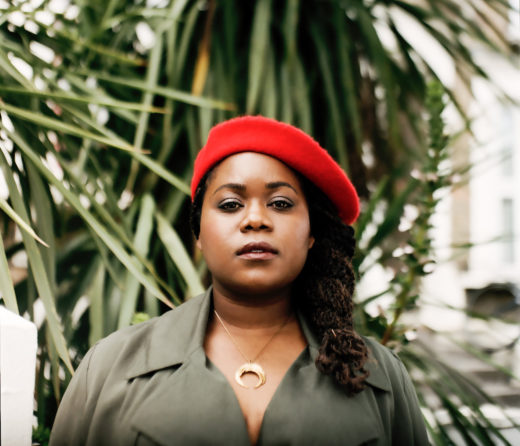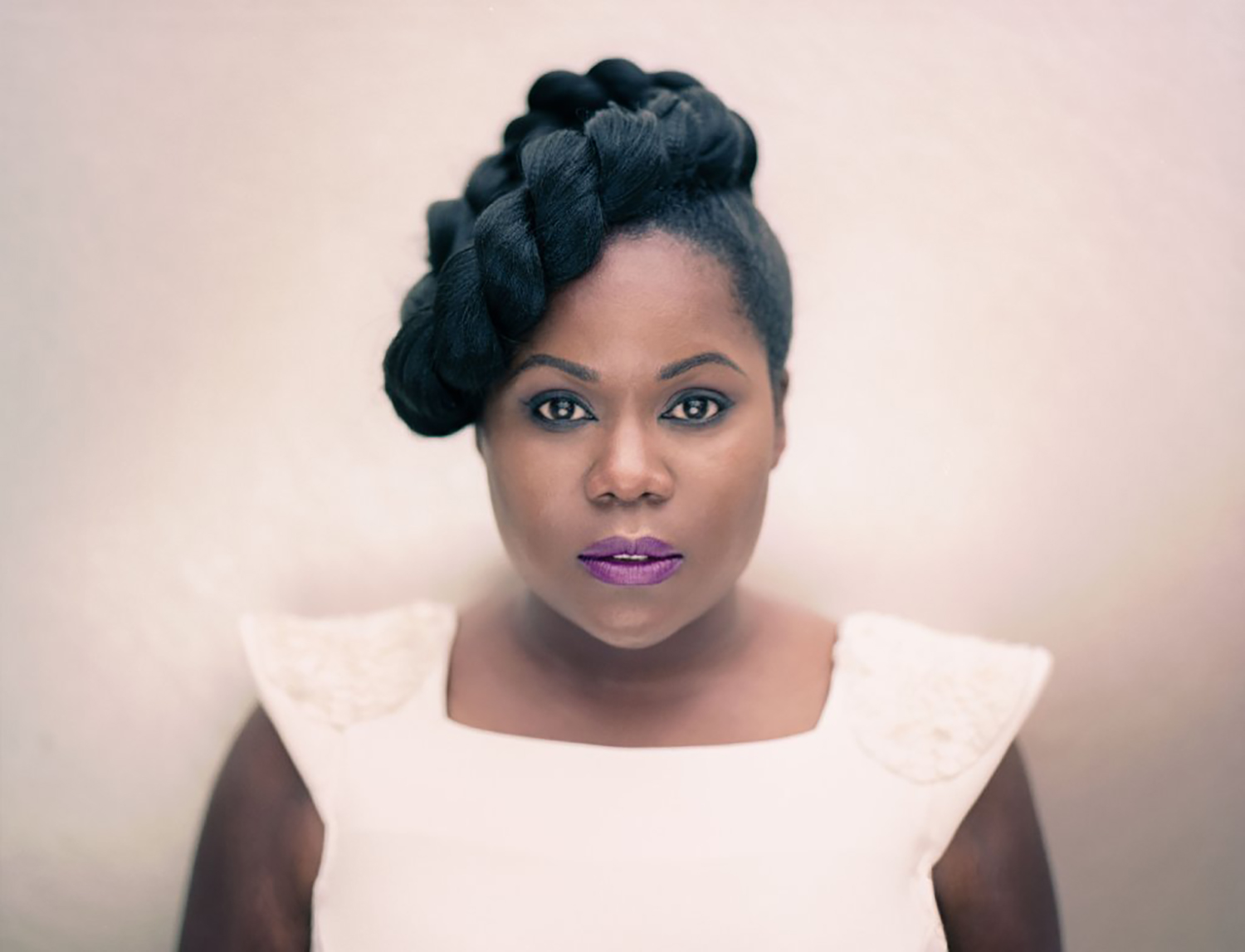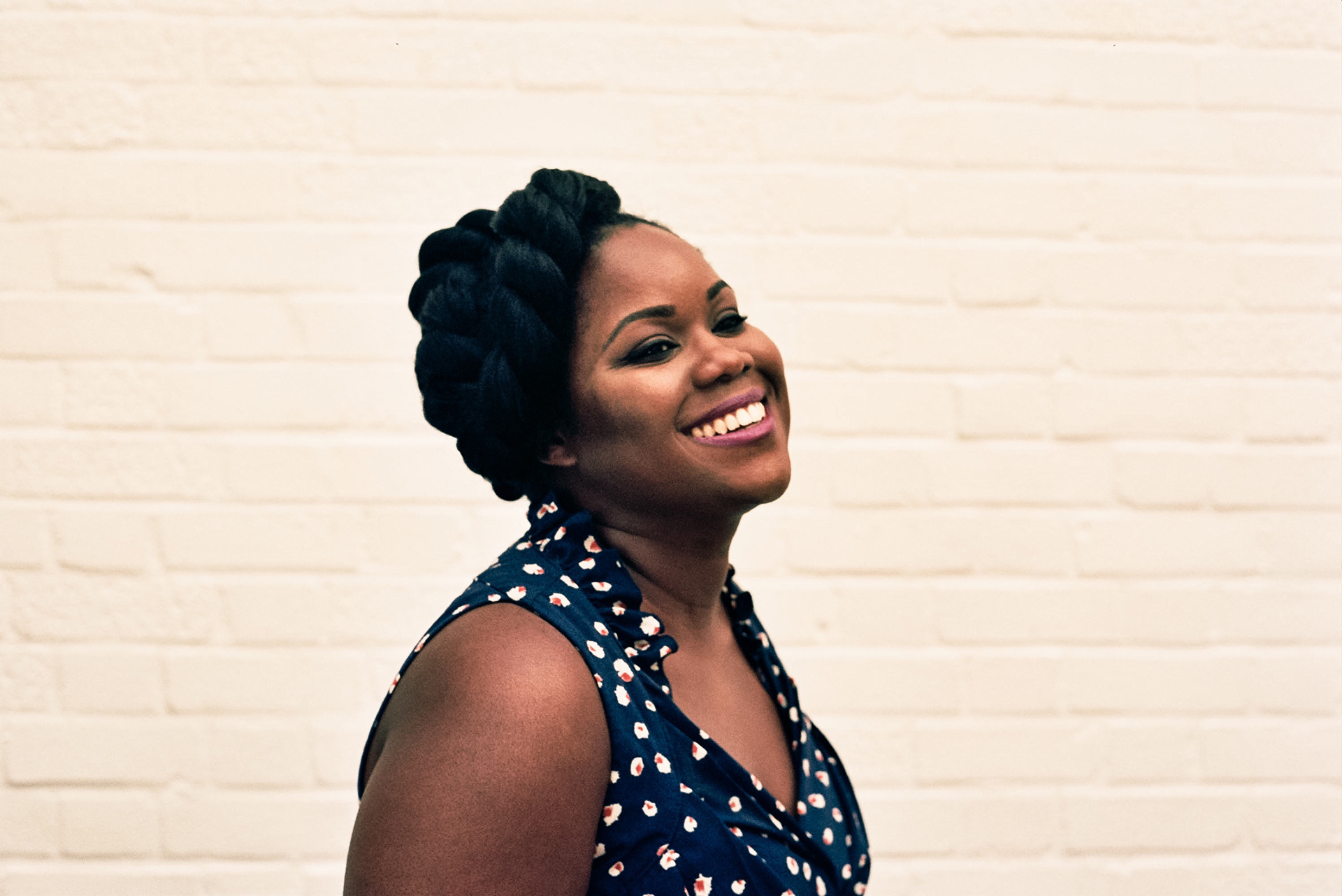- Between New York and Tehran: Directory of Portrayals

- Next Time, Won’t You Sing With Me: Intuitive Alphabet by Michele Oka Doner
Zara McFarlane: Riddim Nation
John Murph
 Zara McFarlane: Riddim Nation
Zara McFarlane: Riddim Nation
Zara McFarlane has a full plate. As we chat inside London’s City Airport in early August, the singer and songwriter is just hours away from flying to Saint-Cézaire-sur-Siagne, in southeastern France, where she’ll be teaching jazz master classes for a week in the Provence-Cote d’Azur in conjunction with the city’s 2017 edition of Festi-Jazz.
She also teaches at the famed Guildhall School of Music and Drama, where she earned her master’s degree in jazz studies. There, she teaches an arts program with a strong emphasis on entrepreneurship. “The program teaches people how to create an enterprise for themselves and what that means from a day-to-day basis. I also have one-to-one singing lessons with them and I’ve done a couple of songwriting workshop there,” the 33-year-old McFarlane says.
The prior night, she sang with London’s Royal Shakespeare Company in a modern production of Antony & Cleopatra, directed by Iqbal Khan and featuring music composed by fellow Jamaica descendant and London-based singer and songwriter Laura Mvula. She’s been working with the Company since March of this year. “I’m basically singing in the band. I have a few moments on the stage as well. So I actually get dressed up in a costume,” she says. “It’s been quite nice to step out from being the front of attention and push myself in a different way. The music is quite more classical. Well, to my ears, it sounds like classical music. But they particularly didn’t want a classical singer to sing the music. I don’t know why they made that choice. But it’s been a really nice experience.”
As her gig with the Royal Shakespeare Company winds down in September, 2017, McFarlane will have to gear up for another enterprise – promoting her superb new disc, Arise, which comes out toward the end of that month. Her third disc on Gilles Peterson’s label, Brownswood Recordings, it possesses some of the Jamaican and Caribbean melodies and rhythms she heard while growing up on the edges of London in Essex. Those touchstones also wafted through her previous discs – Until Tomorrow (2011) and If You Knew Her (2014), the latter receiving the MOBO Award for “Best Jazz Act.” But whereas those musical aesthetics often emerged more subtly thanks to McFarlane’s gossamer jazz arrangements, Arise’s central theme of exploring her Jamaican heritage and the wide Afro-Caribbean Diaspora bursts forth more pronounced.

Arise places a heavier emphasis on rhythm than McFarlane’s other albums. It becomes obvious from the beginning as the disc opens with surging, percussion-and chant heavy “Ode to Kumina,” whose rhythms traces back to the enslaved Congolese people brought to Jamaica. From there, McFarlane’s exquisite, unalloyed voice glides across such throbbing, reggae-infused pieces as the disc’s lead single, “Fussin’ and Fightin,’” the electronica-en- hanced “Freedom Chain,” and the shuffling “Peace Within.”
“I knew that I wanted to make a record that had much more rhythm and harmony than my previous two albums,” says McFarlane before explaining that her rhythmic concepts germinated before any of lyrics and melodies.
 Autosave-File vom d-lab2/3 der AgfaPhoto GmbH
Autosave-File vom d-lab2/3 der AgfaPhoto GmbH
To help her achieve her rhythmic goals, McFarlane enlisted 26-year-old jazz and electronica drummer extraordinaire Moses Boyd as producer (she produced Until Tomorrow and If You Knew Her on her own). She would send Boyd musical sketches and voice directions for him to build rhythms around. “It would be a constant back and forth between us for a couple of months before the songs started taking shape,” Boyd recalls. “We recorded some music quite openly so that I could edit it a lot later. She would kind of write to those edits. This went on for a long time. It was a very interesting process.”
“Moses has a lot of ideas when it comes to the sound of music because he knows records. He had a very interesting way of developing the sounds of records,” McFarlane adds. “I’ve never worked with a producer before. It was nice to have that dynamic of having opinions from somebody else. I knew that the music was to be rhythmically layered and Moses was the right person to work with because he’s also of Caribbean descent. One of his parents is Jamaican, the other is Dominica. He understood what I was trying to do.”
McFarlane and Boyd are members of the U.K.’s new vanguard of young jazz musicians who are imbuing modern jazz with Caribbean and African influences as well as 21st-century hip-hop, R&B and electronica. The two also came through London’s influential Tomorrow Warriors, a finishing jazz educational program, spearheaded in 1992 by bassist Gary Crosby and Janine Irons. Arise features other such other kindred spirits as guitarist Shirley Tetteh, trombonist Nathaniel Cross, pianist Peter Edwards, tenor saxophonist Binker Golding, and bassists Max Luthert and Neil Charles. London’s new breakout jazz star – reedist Shabaka Hutchings, whose forward-thinking jazz ensemble Sons of Kemet won London’s MOBO’s Jazz Artist of the Year award in 2013 – makes a guest appearance on the disc’s brooding tune, “Silhouette.”
“The album really feels like her,” enthuses Gilles Peterson, the influential tastemaker and owner of Brownswood Recordings, “She’s really discovering her own sound.” When Peterson first heard McFarlane, he was initially captured by the “purity and sophistication” of her voice. “I saw her live and I could hear every single word that she sang. She had finesse and swing,” he recalls.
“Slowly, I felt an attitude in her writing,” he continues. “That was really important. I gave her quite a little direction in terms of some of the jazz that I was listening to – the more spiritual side of things. I think a lot of singers can go too easily toward jazz standards. Zara can knock all of that out in a restaurant. But I wanted to know if she had lyrics and stories to tell inside of her, and if she could she go darker. She had the elements that I was looking for.”
Peterson also gave McFarlane some direction in terms of checking out certain jazz and reggae records and suggesting that she work with Boyd. “I’ve never met someone who has so many ideas like Gilles. He’s like an encyclopedia. He knows so many records,” McFarlane says. “Gilles bounces ideas off of people. He likes to see how your mind works before you start working on an album.”
Indeed, Arise impresses just as strongly lyrically as it does sonically. McFarlane has always proven to be a thoughtful lyricist, capable of conveying complicated emotions and perspectives drawn from personal experiences. And while she’s never shied away from the political as evidenced from her meditative makeover of Junior Murvin’s 1976 reggae hit, “Police and Thieves” (from If You Knew Her) or her most recent, stand-alone cover of “All Africa,” (on Brownswood Recordings), a song from the landmark 1960 jazz LP, We Insist! – Max Roach’s Freedom Now Suite, McFarlane’s originals brim with more socio-political commentary on Arise than before.
Take for instance, “Fussin’ and Fightin,’” the smoldering lead single that touches upon the frustrations and inner multicultural turmoil that anticipated the UK’s Brexit. “About two years ago, there was such a feeling of unrest here. You could see throughout the U.K. that people were unhappy,” McFarlane says. “So the song is kind of about that feeling but not accepting it and not to be pushed about. But at the same time, trying to come together and do something positive. Sometimes you can just sit back and hope for the best. Sometimes, you have to do something. I’m an advocate for doing stuff. I’m very proactive. The thing with that song is determining what exactly is the right thing to do.”
On the somber ballad, “Silhouette,” McFarlane gets more personal as she conveys the loss of Jamaican family historical documents, which traces colonial Jamaica back to Africa, and most certainly the connecting dots between many Jamaicans’ immigration to England. “It’s an homage to my heritage and blackness and being proud of it,” she says. “I think in black America, you learn about slavery because it’s spoken about – everyone knows that it has happened. But in the U.K., it just doesn’t feel that way. A lot of English people that you speak to don’t know that much about our history.”
“I don’t even know that much and it’s my history,” she continues. “A lot of people don’t understand why the black and Indian people came here in the ’50s, ’60s, and ’70s and how they are related to England. A lot of money that went into England after the Jamaican Emancipation happened [came from] the British government paying the slave masters to free the slaves. It wasn’t something they just did out of the kindness of their hearts. A lot of that money was put back into this country to help build the Industrial Revolution. A lot people don’t understand the history of all of that. The only reason people from the Caribbean were invited here was to build railroads and buildings after the Second World War. It’s interesting to learn about. I’m still trying to figure out how I feel about it because there are so many different elements to it.”
Before and after making Arise, McFarlane has consumed herself with vigorous research on the various Caribbean migrations to England, which occurred most notably in June 1948 at Essex’s Tilbury Dock via the SS Empire Windrush. Within that research, she’s uncovered information about colonial Jamaica and how enslaved black people from the Congo retained some of their cultural traditions after the horrific Middle Passage. McFarlane has journeyed to Jamaica about eight times in the past to visit her family in the country hills of Hanover. This past summer, the London-based Jerwood Charitable Foundation, helped fund some of her research, allowing her to venture to Kingston to speak with various university professors and Rastafarians scholars.
“I’m also writing a musical that’s loosely based upon a Caribbean folk story, ‘The White Witch of Rosehall,’” McFarlane says. “It’s not an exact interpretation. For that, I was doing a lot of research. The musical is set in colonial Jamaica around the time of Emancipation, which was 1834. I wanted to explore some of the rhythmic elements of early Jamaican folk music. So a lot of that research came after the album. But it’s with that in mind that some of the tracks came from a little bit of that long, ongoing research I’ve done before on music from the Congo. It’s a bit later than 1830 when they came over to Jamaica. You can hear that African style. We used that style a little bit on Arise.”
After finishing the music for Arise, McFarlane initially wasn’t sure what to title the new album. “I’m not one of those people who tend to have a working title. I like to feel how things unfold then work with the outcome,” she explains. “Many of the people at Brownswood Recordings were intrigued with the album. When they heard it, they thought that it really sounded like me. So the idea of ‘arise’ felt right.”
John Murph is a Washington, D.C.-based music and arts journalist and DJ who has contributed to Downbeat, JazzTimes, JazzWise, The Washington Post, The Atlantic and National Public Radio.








